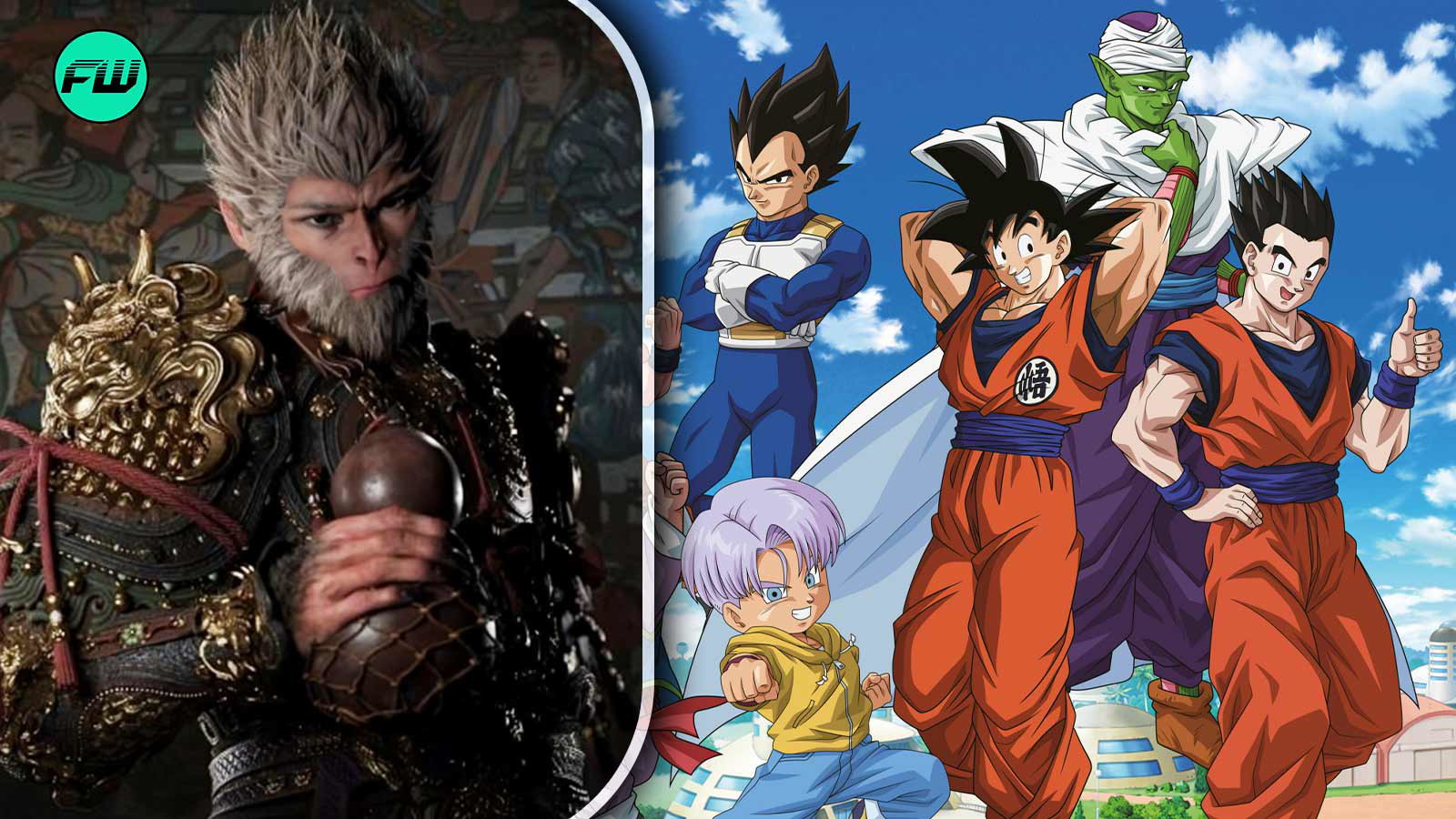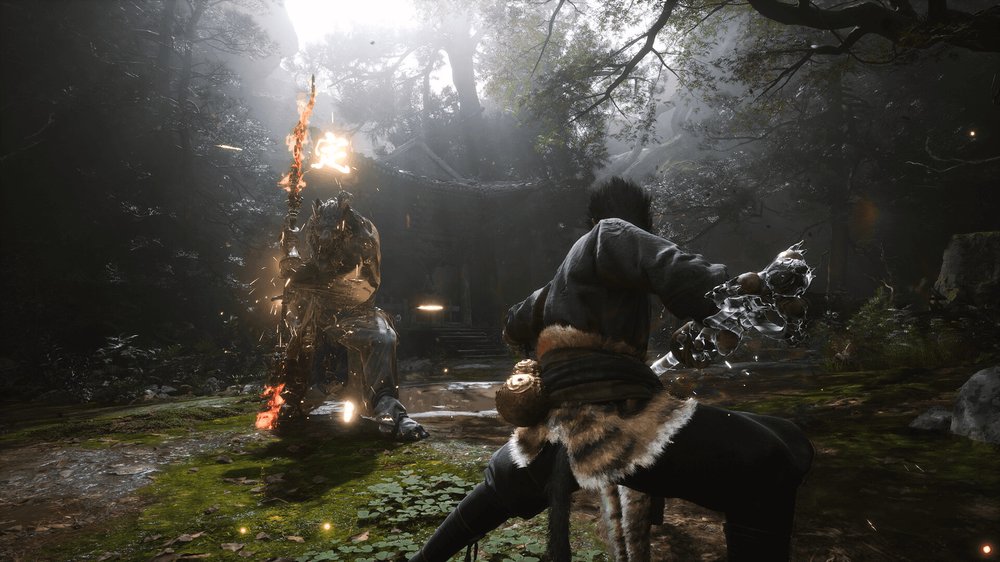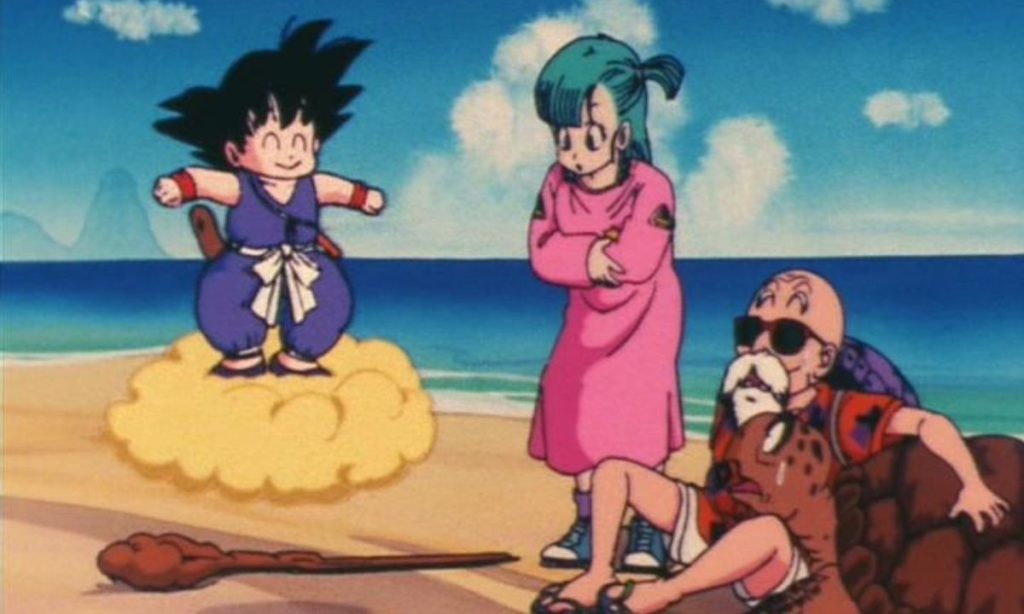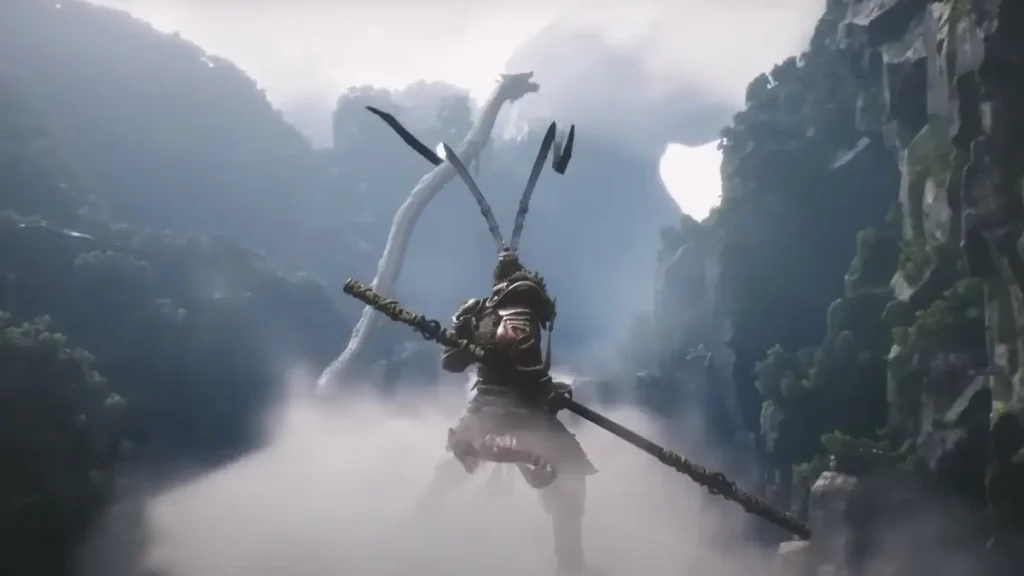In the ever-evolving landscape of popular culture, few narratives have transcended cultural and temporal boundaries as effectively as the classic Chinese tale Journey to the West. This centuries-old novel has not only inspired countless adaptations across various media but has also left an indelible mark on some of the most beloved franchises in contemporary entertainment. One of the most fascinating examples of this influence is the striking parallel between the recently released video game Black Myth: Wukong and the legendary anime and manga series Dragon Ball.

The similarities between these two seemingly disparate creations extend far beyond their surface-level attributes, revealing a shared lineage that traces back to the mythological figure of Sun Wukong, the Monkey King. As fans of both Dragon Ball and Black Myth: Wukong are now discovering, the character of Goku, one of the most iconic figures in anime history, owes a great deal to this ancient Chinese legend. And yet, the connection between the two is not merely a case of shared inspiration; it is a testament to the enduring power of storytelling and the ways in which cultural myths continue to shape modern narratives.
The Cultural Legacy of Journey to the West
To fully appreciate the connections between Black Myth: Wukong and Dragon Ball, it is essential to understand the significance of Journey to the West in Chinese literature and its impact on global storytelling. Written in the 16th century by Wu Cheng’en, Journey to the West is one of the Four Great Classical Novels of Chinese literature. The story follows the pilgrimage of the monk Xuanzang as he travels to India to obtain sacred Buddhist texts, accompanied by his three disciples—Sun Wukong, Zhu Bajie, and Sha Wujing—each of whom possesses unique supernatural abilities.
Among these characters, Sun Wukong, the Monkey King, stands out as the most popular and enduring figure. With his mischievous personality, immense strength, and shape-shifting abilities, Wukong embodies the trickster archetype found in many cultures. His journey of self-discovery, from rebellious troublemaker to enlightened being, resonates across time and borders, making him a symbol of resilience, transformation, and the pursuit of knowledge.
Akira Toriyama’s Goku: A Modern Sun Wukong
When Akira Toriyama set out to create Dragon Ball in the 1980s, he drew heavily from Journey to the West for inspiration. This influence is evident in the very name of his protagonist—Goku, which is the Japanese reading of “Wukong.” Like Sun Wukong, Goku is an anthropomorphic character with a monkey-like appearance, and both characters share a love for adventure, combat, and pushing their physical and mental limits.

The parallels between Goku and Sun Wukong extend beyond their names and appearances. Both characters are defined by their boundless energy, playful nature, and unyielding desire to become stronger. Goku’s signature fighting style, characterized by its agility and unpredictability, mirrors Wukong’s martial arts prowess. Moreover, the use of a magical staff—Ruyi Jingu Bang for Wukong and the Power Pole for Goku—further cements the connection between the two characters. These staffs, capable of extending to great lengths, symbolize the characters’ reach and influence, both in combat and in the narratives they inhabit.
Goku’s early adventures in Dragon Ball closely mirror the structure of Journey to the West. In the original series, Goku embarks on a quest to find the Dragon Balls, much like Xuanzang’s journey to retrieve the Buddhist scriptures. Along the way, Goku encounters a host of characters who join him on his journey, forming a makeshift family of companions similar to the monk and his disciples. The whimsical, episodic nature of Dragon Ball’s early storylines, filled with humor, magical creatures, and battles against powerful foes, echoes the tone and structure of Journey to the West.
Black Myth: Wukong: A Modern Retelling
Fast forward to the present day, and we find another creative work drawing from the rich well of Journey to the West: the video game Black Myth: Wukong. Developed by Game Science, this action-adventure RPG has taken the gaming world by storm, thanks in part to its stunning graphics, immersive gameplay, and deep narrative rooted in Chinese mythology. In Black Myth: Wukong, players assume the role of Sun Wukong, embarking on a journey that blends elements of mythology, folklore, and historical fiction.
The game’s depiction of Sun Wukong stays true to the original legend while also reimagining the character for a modern audience. Black Myth: Wukong emphasizes the Monkey King’s supernatural abilities, allowing players to experience his shape-shifting powers, cloud-riding skills, and mastery of the staff in breathtaking detail. The game’s narrative is richly layered, exploring themes of identity, redemption, and the eternal struggle between good and evil—concepts that are also central to Journey to the West and, by extension, Dragon Ball.
The Missed Connection: What If Black Myth: Wukong Had Released Sooner?
Given the profound similarities between Black Myth: Wukong and Dragon Ball, it is intriguing to consider what might have happened if the game had been released earlier—perhaps even during Akira Toriyama’s lifetime. Toriyama, known for his humility and reluctance to “brag” about his work, might have found in Black Myth: Wukong a kindred spirit in storytelling. The game’s release could have sparked a fascinating dialogue between the creators, further enriching the cultural exchange between Japanese and Chinese narratives.

Fans of Dragon Ball who have now discovered Black Myth: Wukong are quick to draw comparisons between the two, noting the uncanny resemblance between Sun Wukong and Goku. One popular sentiment, expressed by fans on social media, is that “Wukong walked so Goku could run.” This phrase encapsulates the idea that Sun Wukong’s legacy paved the way for characters like Goku to achieve global fame, carrying forward the mythological themes introduced in Journey to the West.
The Impact on Pop Culture: From Goku to Luffy and Beyond
The influence of Journey to the West extends beyond Dragon Ball and Black Myth: Wukong, permeating various facets of popular culture. For instance, Eiichiro Oda’s One Piece protagonist, Monkey D. Luffy, shares several traits with both Goku and Sun Wukong. Luffy’s insatiable appetite for adventure, his cheerful demeanor, and his elastic abilities draw clear inspiration from the same mythological source that inspired Goku.
In this way, Journey to the West can be seen as a cornerstone of modern shonen anime and manga, with its themes and characters reinterpreted through different cultural lenses. The journey from Wukong to Goku, and from Goku to Luffy, demonstrates how a single story can inspire multiple generations of creators, each adding their own unique spin while staying true to the core elements of the original narrative.
The Reception of Black Myth: Wukong
Since its release, Black Myth: Wukong has captivated gamers worldwide, earning accolades for its innovative gameplay and deep narrative. The game’s success is a testament to the enduring appeal of Sun Wukong and the timeless story of Journey to the West. For many players, the game serves as both an introduction to the rich tapestry of Chinese mythology and a nostalgic reminder of the characters and themes that influenced their favorite anime and manga series.
As fans of Dragon Ball delve into Black Myth: Wukong, they are likely to find a newfound appreciation for the cultural and mythological roots that shaped their beloved series. The game not only stands on its own as a remarkable achievement in storytelling and design but also serves as a bridge connecting past and present, East and West, mythology and modernity.
The Legacy of Sun Wukong
The story of Sun Wukong, as told through Journey to the West, has transcended its origins to become a global cultural phenomenon. Through Dragon Ball, Akira Toriyama introduced the essence of this mythological figure to a new generation, embedding the Monkey King’s legacy in the DNA of modern pop culture. Now, with the release of Black Myth: Wukong, the circle is complete, as a new medium takes up the mantle, reinterpreting Wukong’s journey for a contemporary audience.

In a world where cultural exchange and adaptation are more important than ever, the enduring influence of Journey to the West reminds us of the power of stories to transcend boundaries and inspire new generations of creators. Whether through the adventures of Goku or the epic battles of Sun Wukong in Black Myth: Wukong, the Monkey King’s legacy continues to run strong, proving that some stories are truly timeless.
News
🧙 Travis Kelce’s Historic Moment: How He Captivated Taylor Swift and the NFL World
In a thrilling night at Arrowhead Stadium, Travis Kelce not only showcased his incredible talent on the football field but also captured the hearts of fans worldwide, including pop superstar Taylor Swift. The Kansas City Chiefs faced off against the…
🎆 Kansas City Chiefs’ Controversial Decision: The Pride Night Debate and Its Ripple Effects
In a move that has ignited fierce debate across the sports world, the Kansas City Chiefs recently announced they would not be hosting a Pride Night event at Arrowhead Stadium. This decision has quickly become one of the most contentious…
👥 The Unsung Hero: How Noah Gray’s Impact is Shaping the Chiefs’ Super Bowl Journey
In the high-stakes world of the NFL, where every play can make or break a season, the contributions of role players often go unnoticed. However, in the Kansas City Chiefs’ recent victory over the Baltimore Ravens, one player shone brightly,…
🤫 Tensions Rise: Isaiah Likely’s Postgame Comments Spark Controversy
It was a tumultuous Monday morning for Isaiah Likely, the tight end for the Baltimore Ravens. Fresh off a disappointing loss to the Kansas City Chiefs, Likely found himself at the center of a media storm following his remarks after…
🆚The Thrilling Showdown: Kansas City Chiefs vs. Baltimore Ravens – A Game for the Ages
In the ever-evolving landscape of the NFL, few rivalries capture the imagination quite like that of the Kansas City Chiefs and the Baltimore Ravens. As the 2024 season kicked off, fans were treated to an electrifying clash that not only…
🤴🏿 The Dark Allure of Comic Book Villains: A Deep Dive into the Most Iconic Antagonists
Comic book villains have long been a source of fascination, drawing readers into their complex narratives and morally ambiguous worlds. These characters often embody the darker aspects of humanity, challenging our perceptions of good and evil. From the sinister Joker…
End of content
No more pages to load











